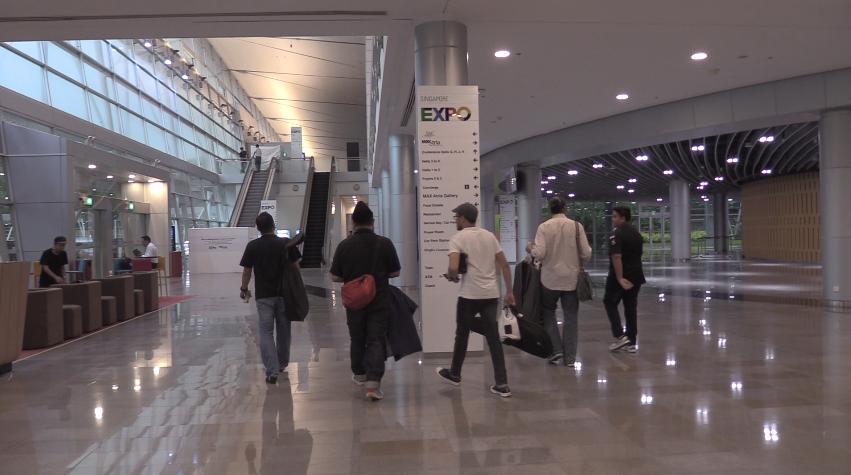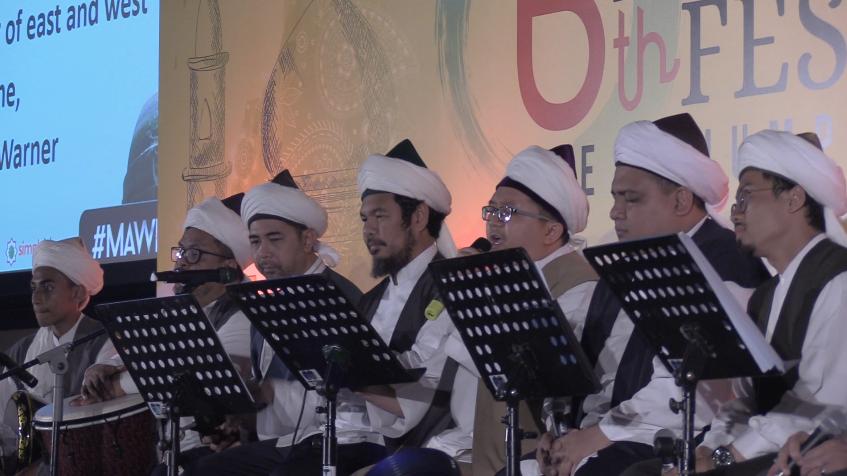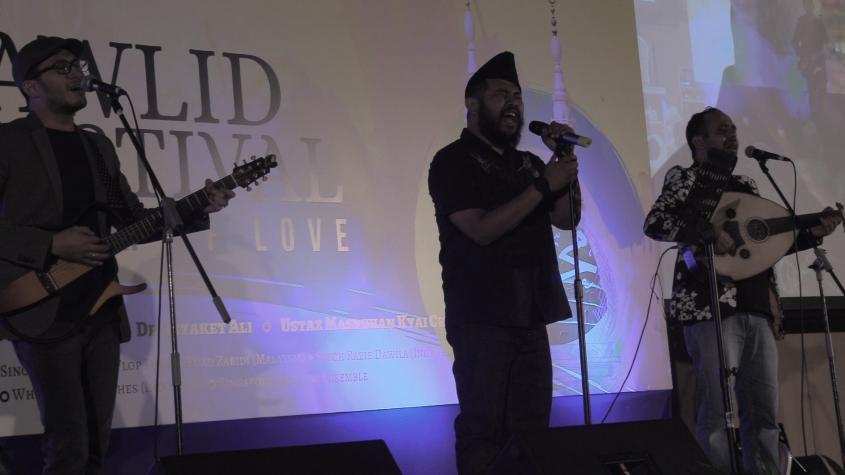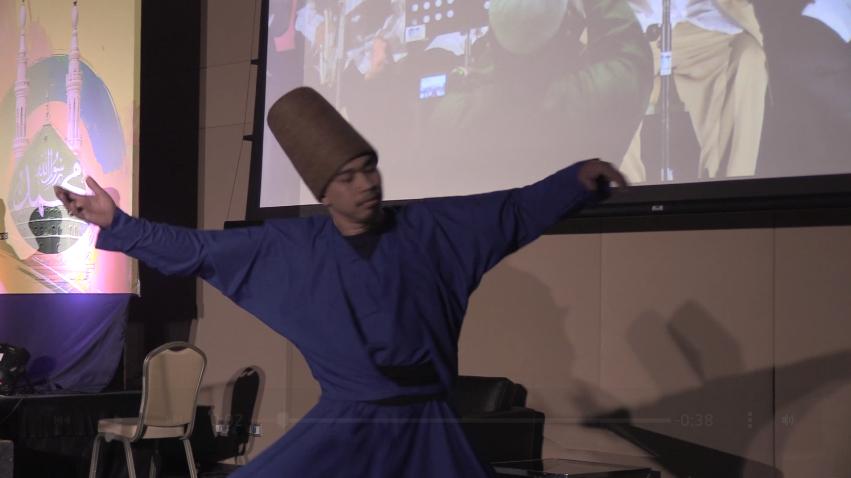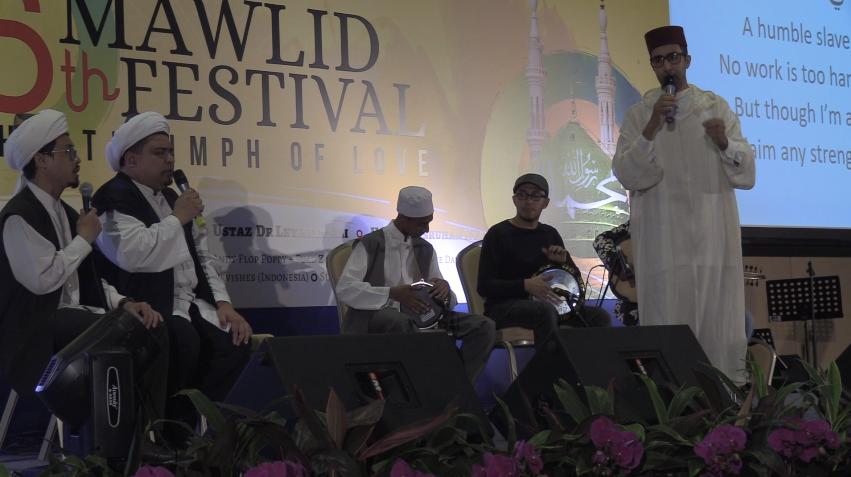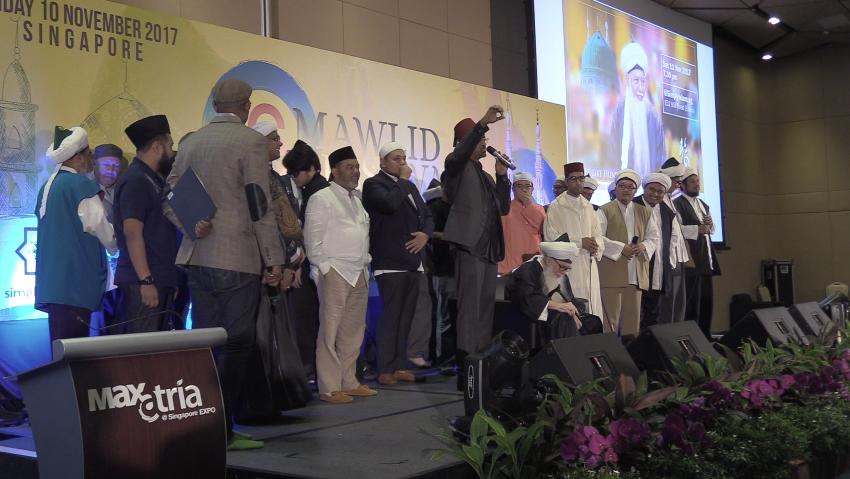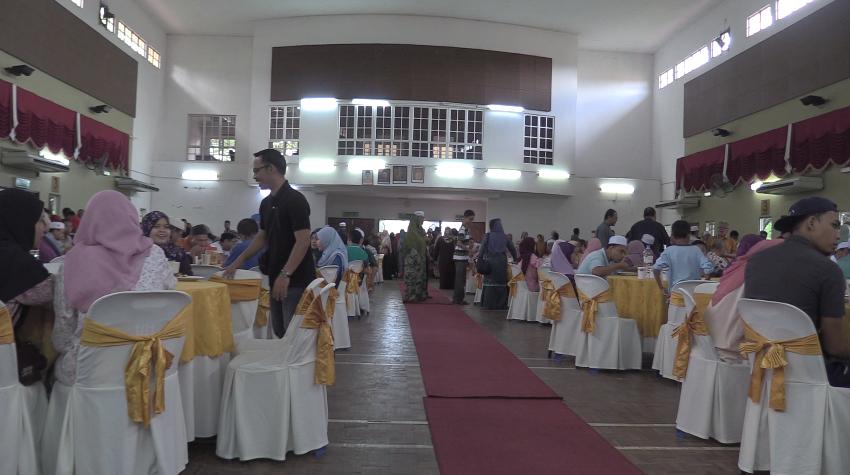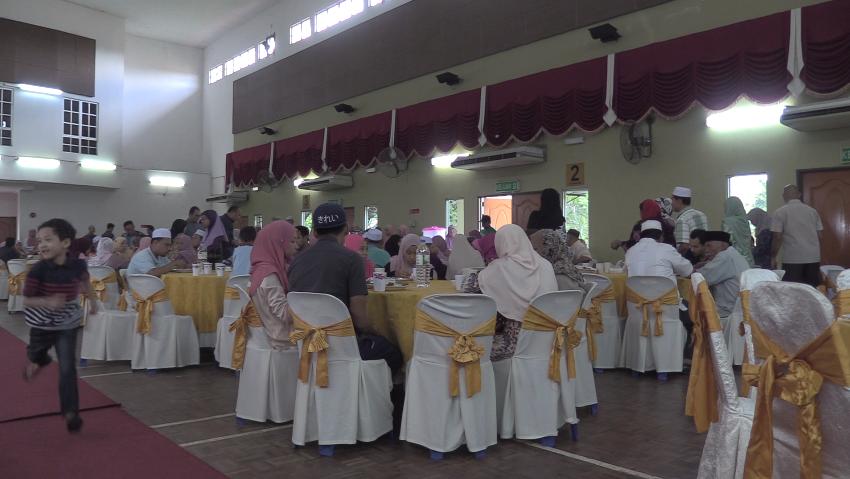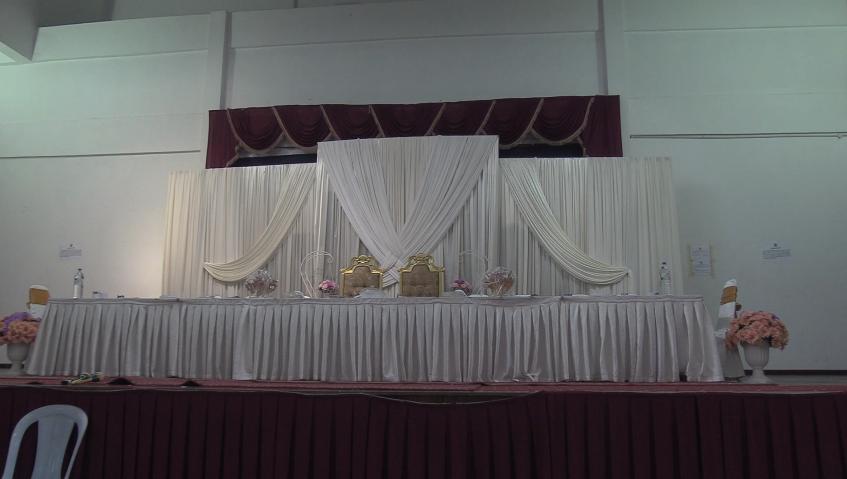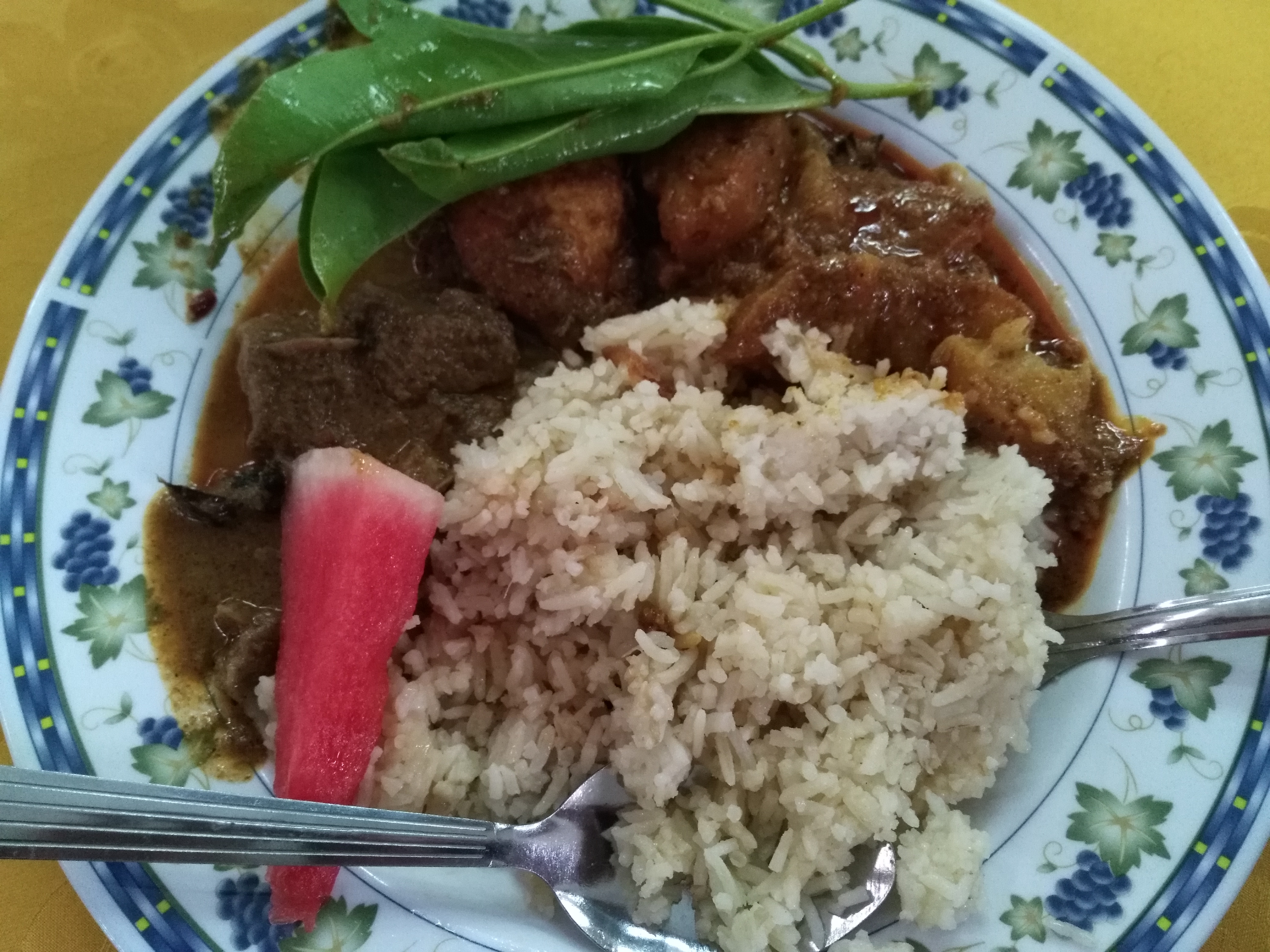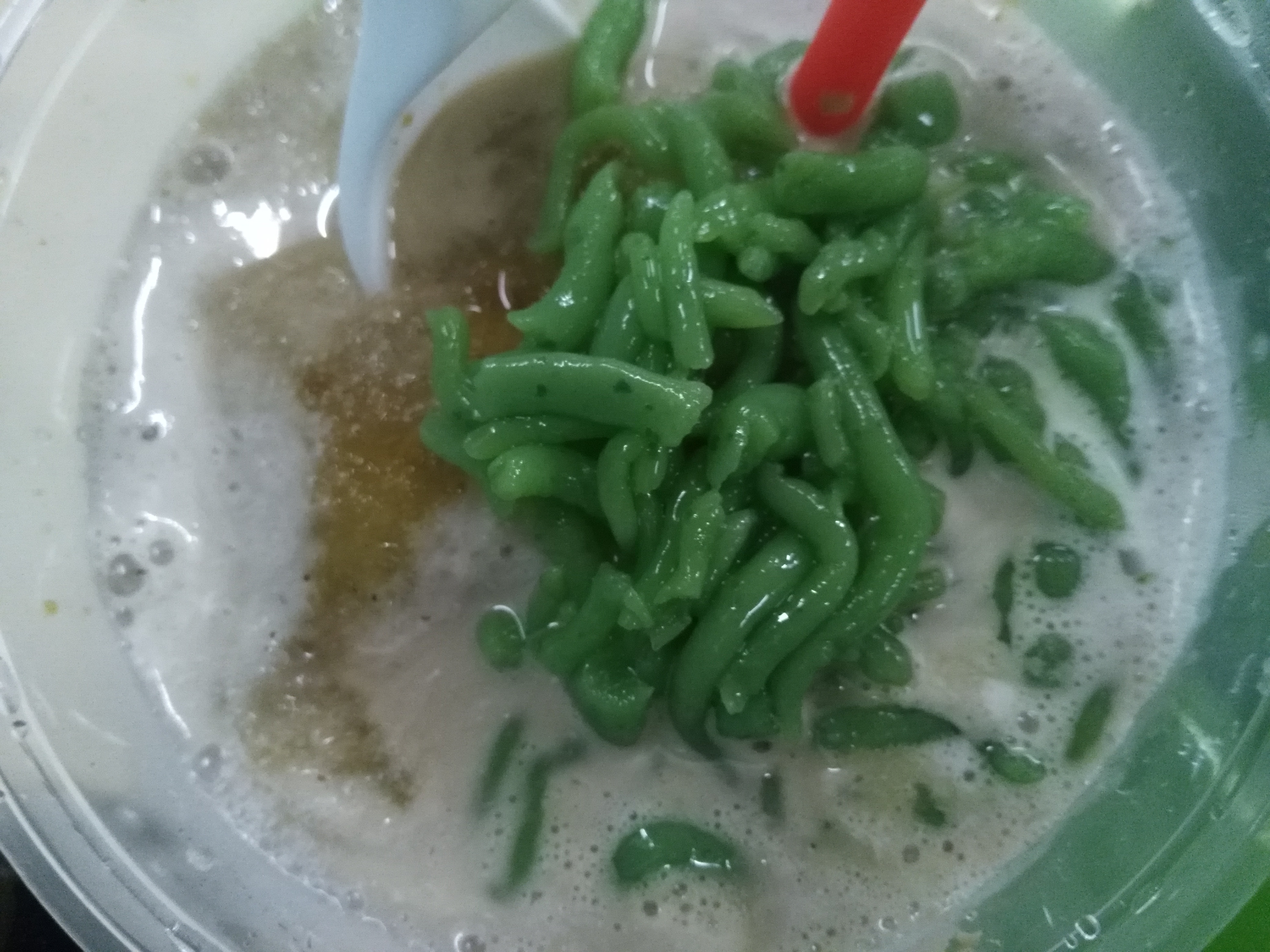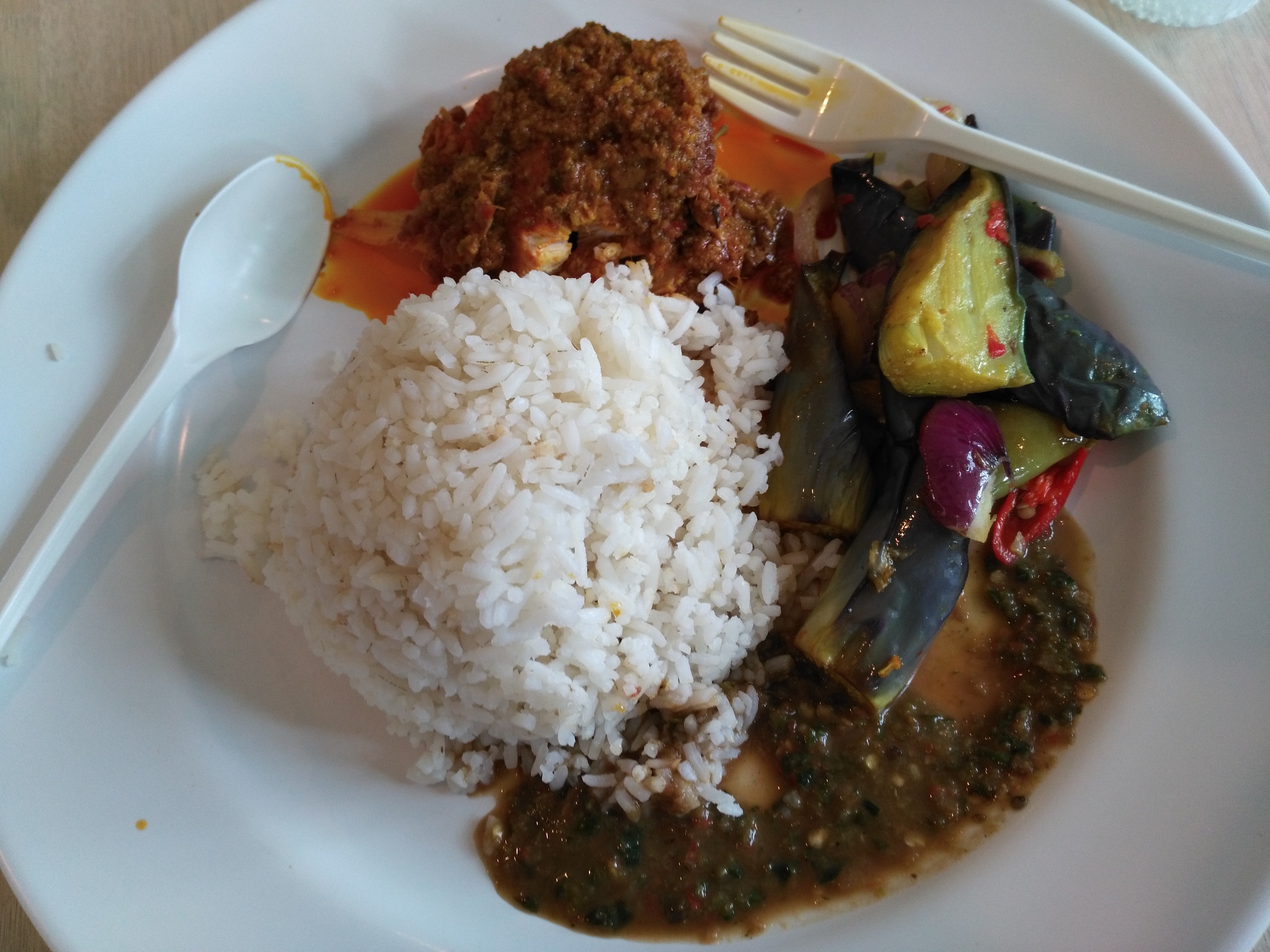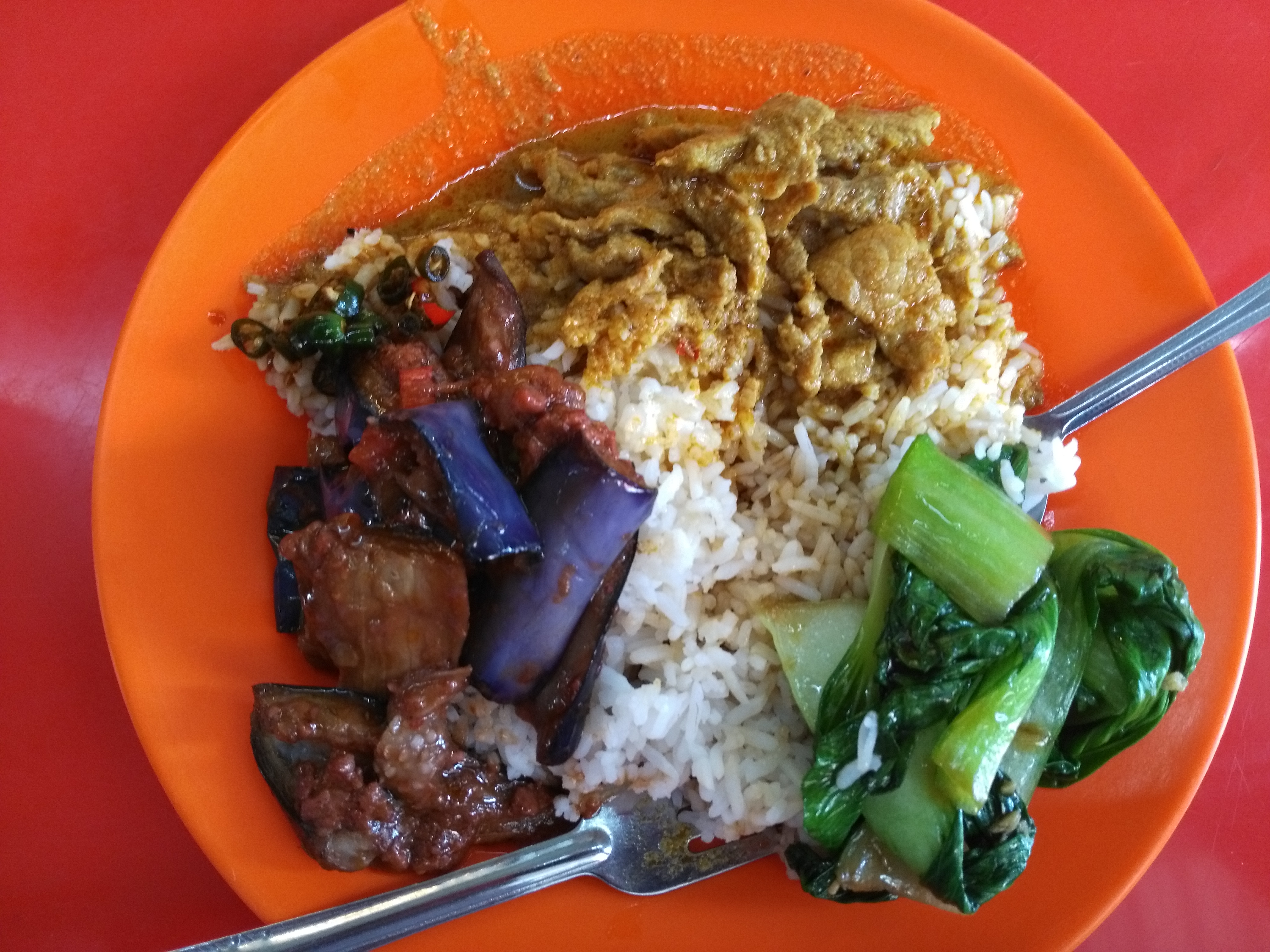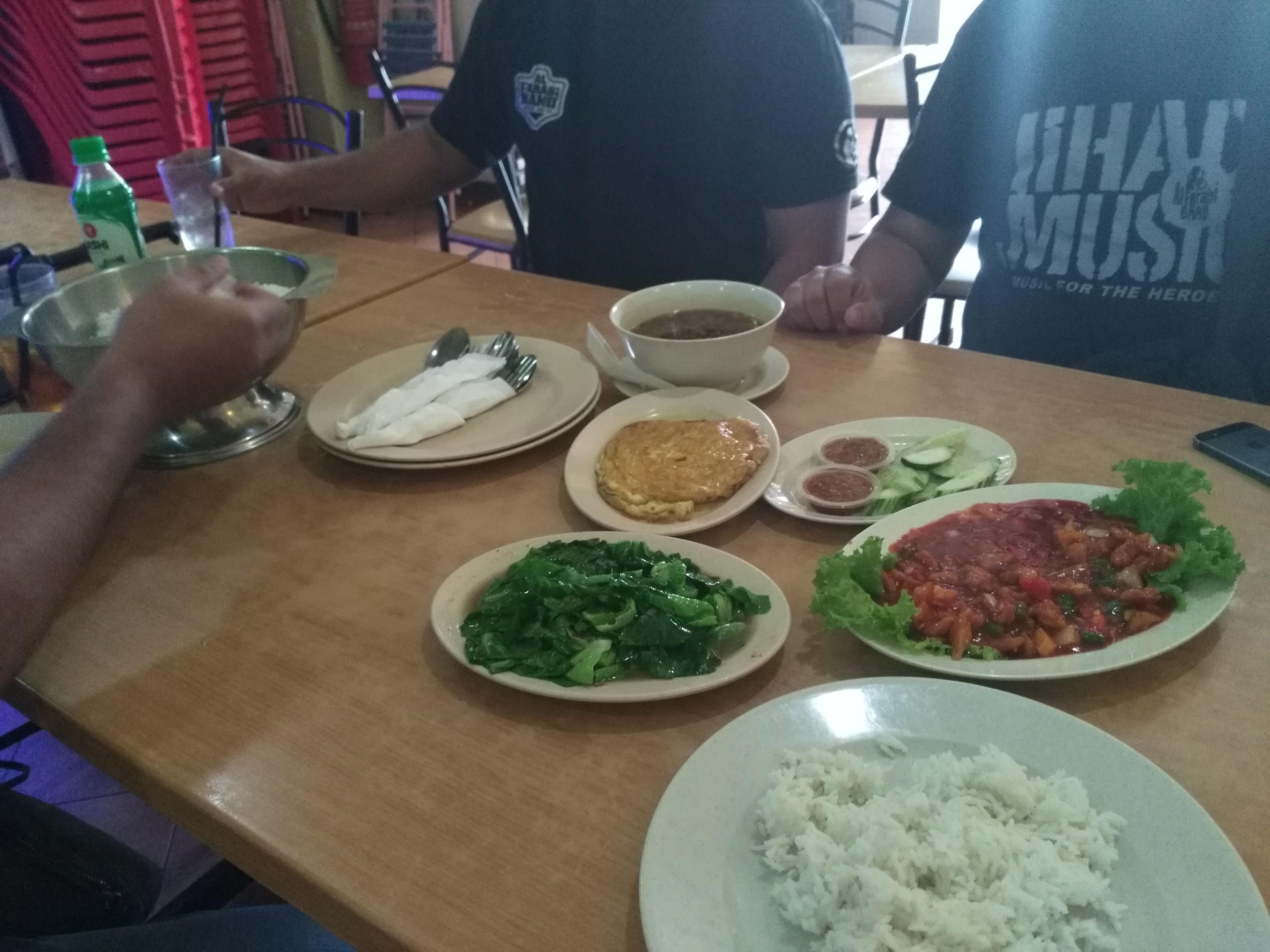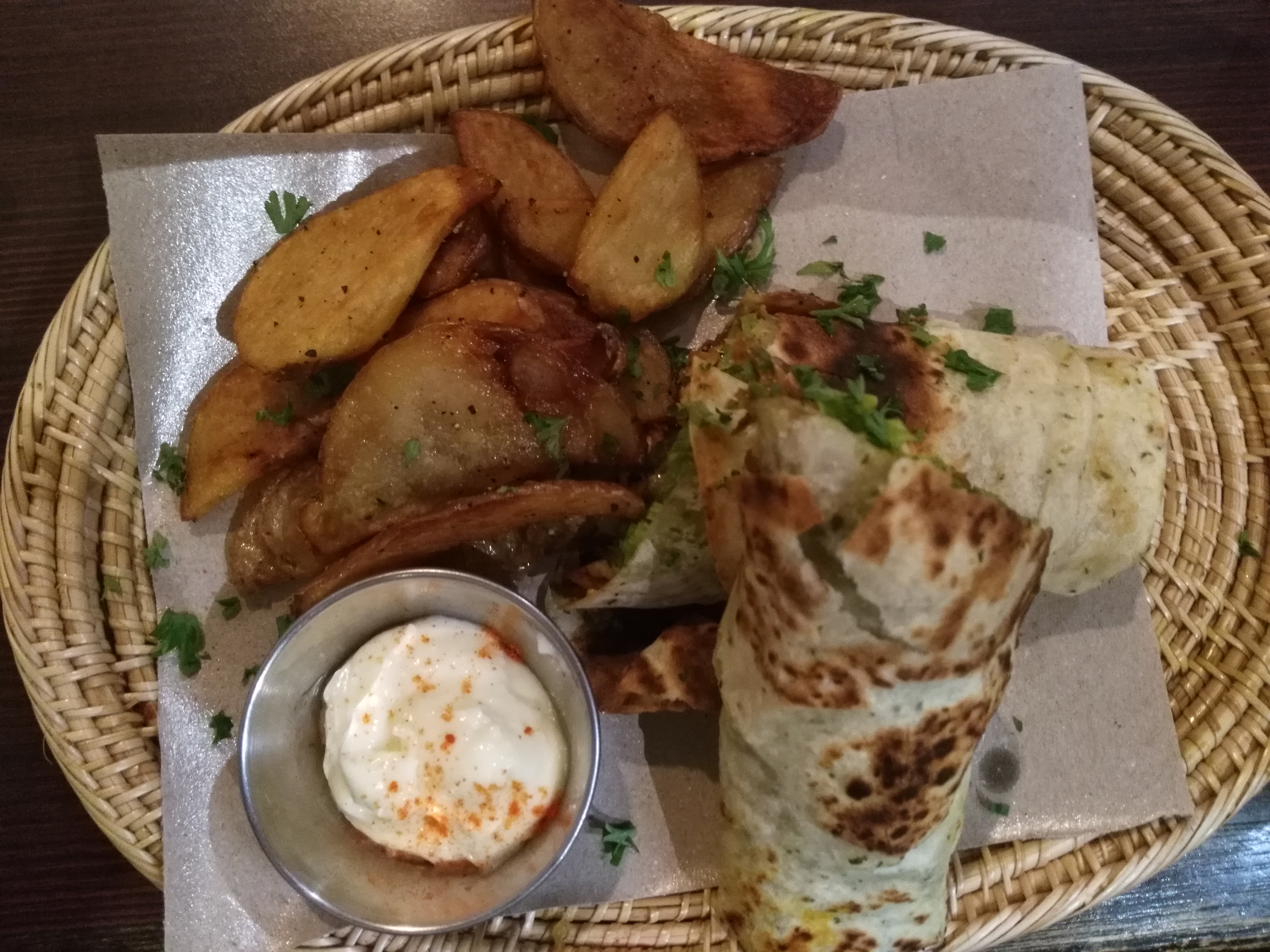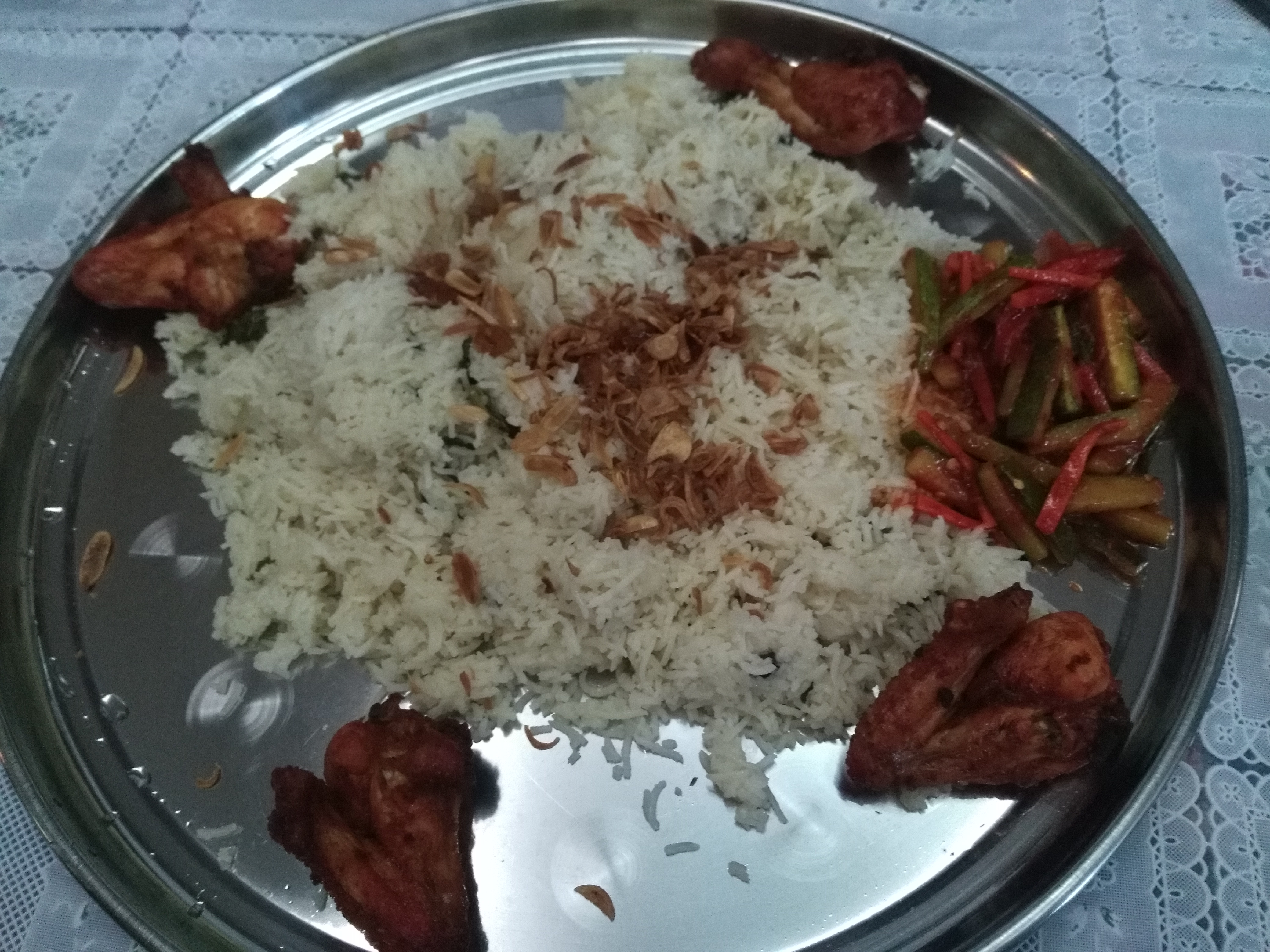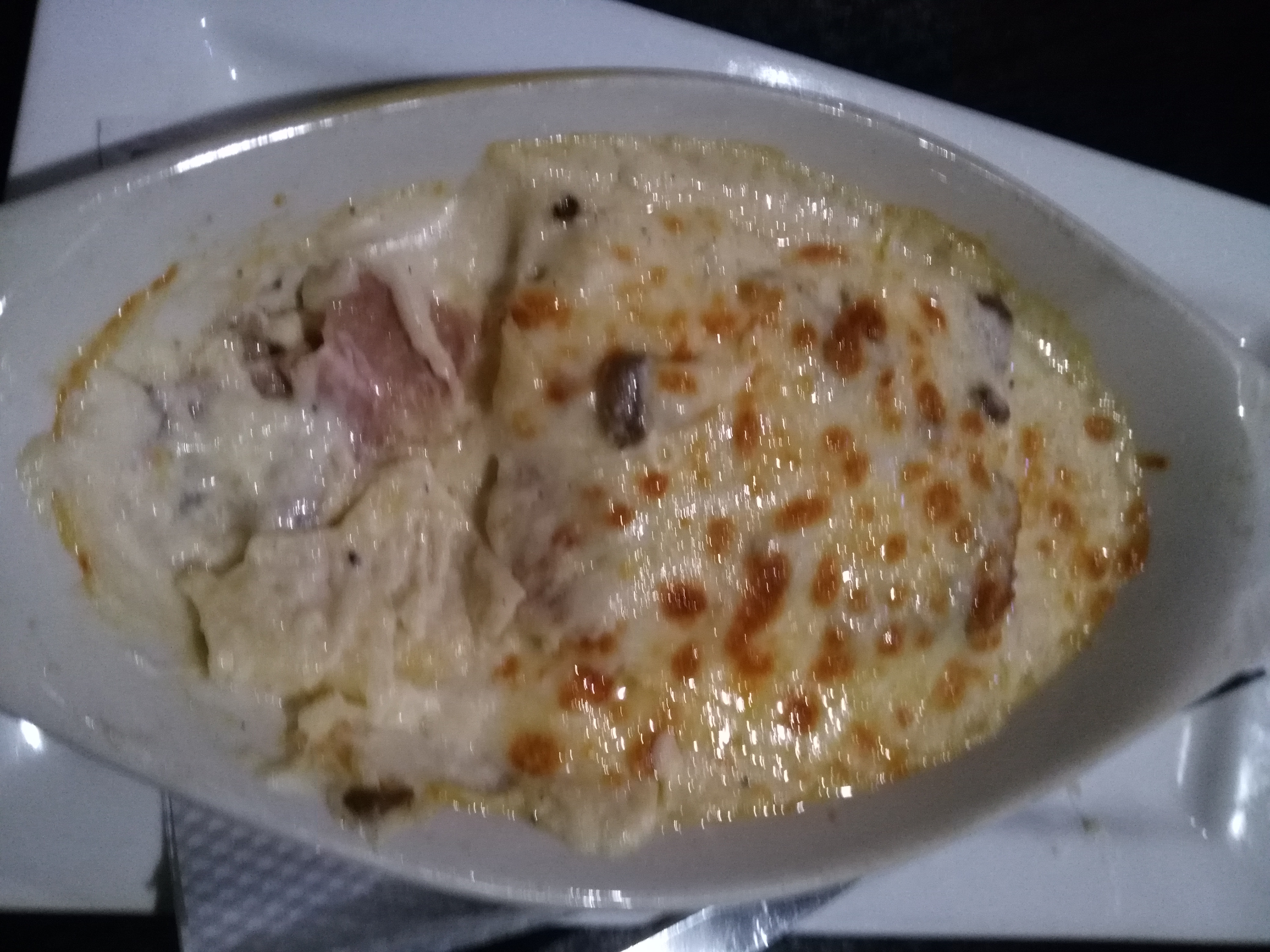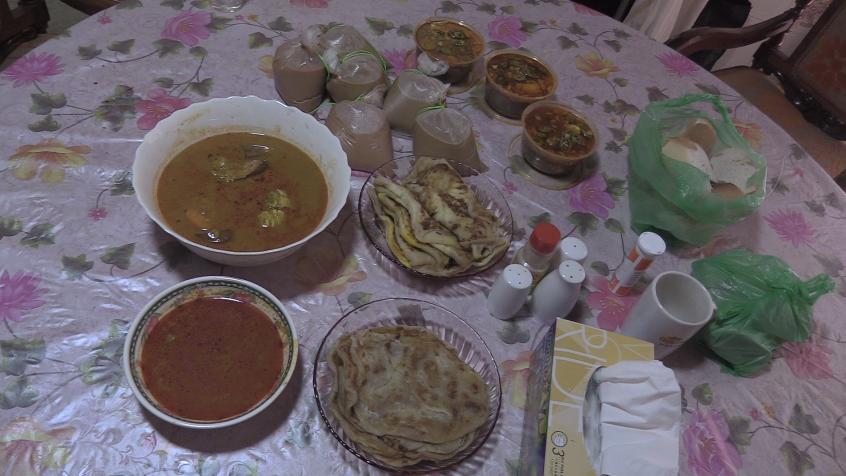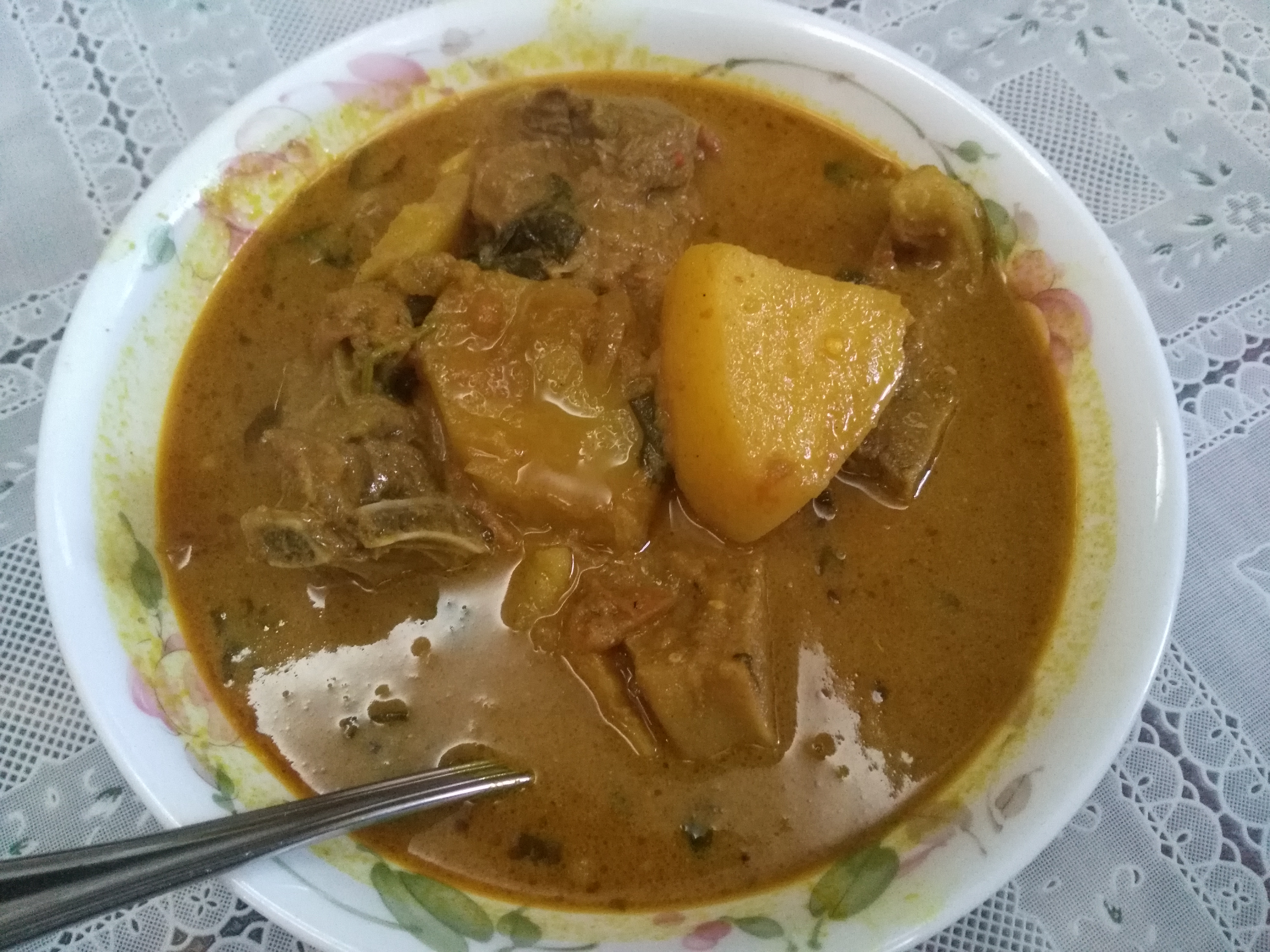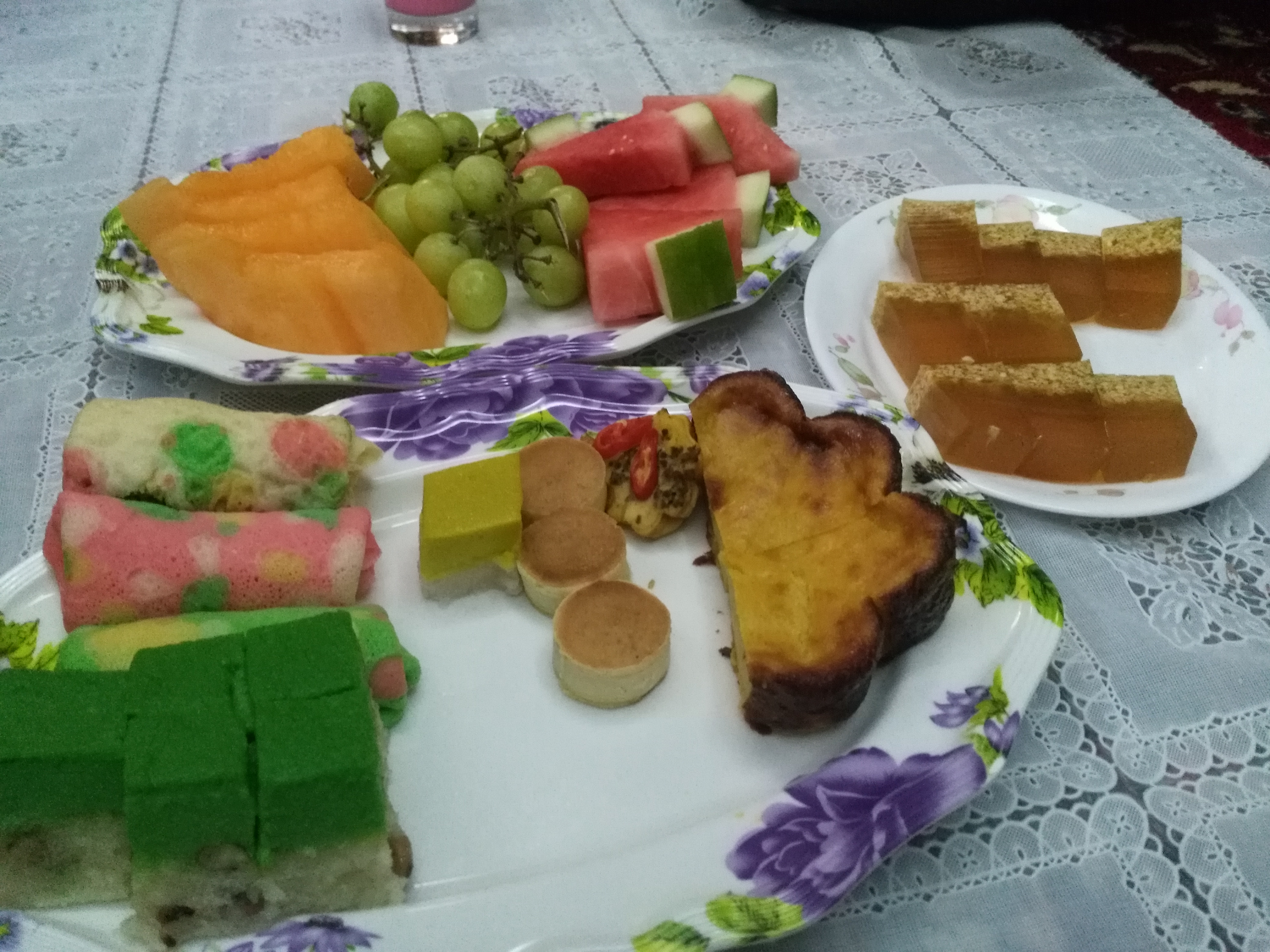Mawlid Music Fest
12 Nov 2017
Reading time ~34 minutes
This past week entailed a bunch of interviews in Kuala Lumpur and a couple of private feasts and musical events in Singapore. I think I’ll just dive right in and leave the standard intro fluff out…
Interviews With Altimet, Farihin, and Al Farabi Band
While back in Indonesia, I mostly interviewed relatively low-profile musicians and religious people. I don’t mean to suggest for a second that such people were mediocre at what they do or what they stand for by using the label “low-profile”. I mean to say that most of my Indonesian connects were simply not very well-known outside of their own musical/religious scenes. In Malaysia, however, I’ve gotten to interview artists and religious figures with relatively large followings or even celebrity-statuses. I think my ability to meet with such people in Malaysia is mostly a result of being connected with the right people as well as a mentality shift on my part to be committed to seeking out relatively high-profile individuals for my Watson project. At any rate, I met up with three rather well known musical acts in Malaysia this week: Altimet, Farihin, and Al Farabi Band.
Altimet
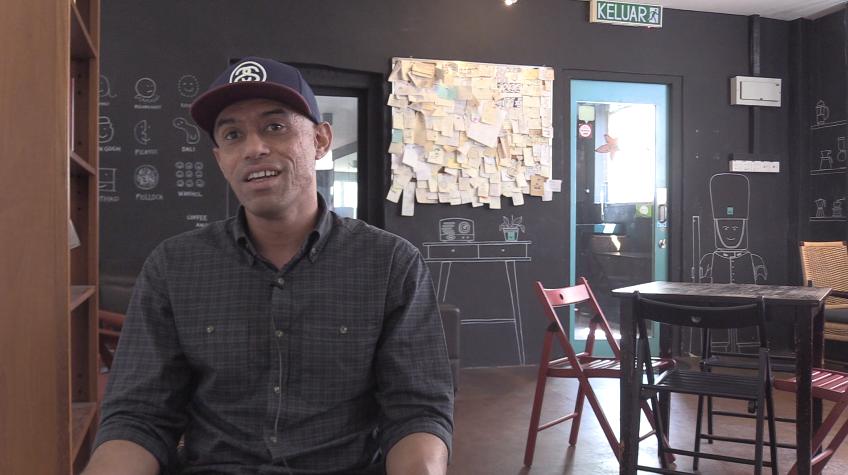
My first interview ever with a “high-profile” artist was with Ahmad bin Abdul Rahman (aka. Altimet), a Malaysian born singer/rapper, producer, composer, and songwriter. Altimet’s been shaking up the music industry since 2000, originally making his name with the Teh Tarik Crew. Since then, he’s had seven no. 1 hit singles in Malaysia, three albums to date, and is now literally the voice of Waze in Malaysia. Altimet plans on retiring from music performance after his fortieth birthday next year, allowing for a shift from music performance more so towards music production and composition. His fans look forward to the much anticipated release of his final album next year. Though Altimet’s musical output nowadays routinely deals with concepts and topics which are either implicitly or explicitly ‘Islamic”, Altimet assured me that he does not brand or market himself as “Islamic”. In his early performing days, Altimet’s music was mostly anything but “Islamic”. He grew up following the sounds of 90’s rappers, and he started making raps as a teenager after being convinced that he could do better than some of the more prominent Malaysian rappers of his day. Altimet told me that members of his family, his father in particular, were initially opposed to his decision to become a full-time musician. Thus far on my travels, upon hearing about this kind of resistance from family members and the wider community, I’ve commonly asked my informants if such resistance is motivated or justified by specific aspects of Islamic doctrine or law. It is indeed sometimes the case that family members forbid or the wider conservative religious community villifies music making on explicitly religious grounds, leaving aspiring Muslim musicians to either leave their musical aspirations behind, practice or perform music in secret, or exile themselves from the purview of such religious conservatives.
I’ve begun to realize that it’s more often the case in these situations that family and community members rely less on explicit appeals to Islamic law, i.e. shariah, in their indictments against arts production and consumption and more so on denuciations of the perceived unstable and hedonistic lifestyles of individual performing artists and perceptions of the liberal/left-leaning culture of the performing arts more generally. Additionally, parents often voice their worries about the financial viability of careers in the performing arts. Even if Muslim parents’ objections towards their children becoming artists might be explicitly religiously motivated, such objections are often couched in other concerns such as the need to steer clear from hedonism and poverty. In other words, rather than demonizing the plucking of a guitar as some sort of inherently sinful or evil activity, which some religious conservatives are eager to do, Muslim parents in general are likely to be more worried about the music making environments and culture of night clubs and bars rife with alcohol consumption, illegal drug use, free gender mixing, and hook-ups outside of wedlock that their children may be more likely to engage in as musicians, dancers, actors, film makers, painters, etc. Clearly, these activities merit much more concern as being shariah non-compliant than more elusive and theoretical considerations regarding the inherent sinfulness of the sound or construction of an acoustic guitar versus an electric guitar versus a guitar sample played on a synthesizer.
At any rate, despite facing intial objections from his family, Altimet has become one of the most well-esteemed rappers in Malaysia, and his father has warmed up to the themes that he now addresses in his music and the lifestyle he now leads (stay tuned for an interview with Alitmet’s father next week). In many ways, Altimet has proven to members of his family and the wider religious community that the freshest of musical acts need not necessitate godlessness. Far from it, his work has been embraced by religious people and religious organizations. Just next weekend, I look forward to seeing him perform a short set for the first ever Sacred Path of Love (SPOL) conference in Kuala Lumpur (the event had been held annualy in Singapore for several years prior). Altimet emphasized to me that he did not make a conscious effort to adapt his music to the expectations/standards of the mainstream Islamic community in Malaysia. Whatever people’s perceptions may be of a difference in the lifestyle he now leads and the music he now produces as compared with the case fifteen years ago is nothing more than an internal process of growth and staying true to oneself in the art that he produces. Aside from his manifold musical engagements, Altimet also runs an Islamic men’s fashion line which stocks merchandise in stores throughout Kuala Lumpur. On top of all this, he told me that he’s currently speculating the agriculture and herding industry in Malaysia, of all things. This is a topic fit for a separate post altogether, but I’ve met individuals time and again on my travels who dabble in a wide range of small business pursuits. I’ve begun to realize that though much of this entrepreneurial drive is rooted in passion, much of it simply has to do with making ends meet. Perhpas I lack exposure to the business efforts of my social network back in the United States, but it seems to me that people in my age group outside of the industrialized West are especially industrious in their pursuits to make some extra cash in economies which are not as robust as those in the industrialized West. Of course, it is likely the case that this difference in industriousness in starting small businesses exists along class lines within individual countries including the United States.
Farihin

My second “high-profile” interview of the week was with Farihin Abdul Fatah, a music producer/composer and arts manager, most commonly associated with the inception and flowering of arguably Malaysian’s most well known nasyeed (essentially any music in the Malay world that has religious content) group, Raihan. I first heard of Raihan in a course I took a couple of years back entitled “Popular Music In The Islamic World” taught by Professor Margaret Sarkissian at Smith College. Raihan has thus gone far beyond its original Malaysian context into the realm of North American academia and Islamic listening and performing contexts throughout Muslim majority countries the world over. I actually didn’t inquire about Raihan at all during the course of my interview with Mr. Farihin, because ethnomusicological literature regarding them and the evolution of the nasyeed music industry in Malaysia abounds. Instead, I attempted to learn as much as possible about his personaly journey along musical and religious lines.
Mr. Farihin grew up with the sounds of his father’s Arabic and psychadellic rock music collection. He had a clear talent for singing from a very young age, competing in Quranic recitation competitions in the tilawa style by the age of 11. At age 12, he was familiar and well-versed enough in a number of musical genres and traditions to be performing in bands for various musical functions including weddings. Between the ages of 17 and 21, Mr. Farihin left the tilawa Quranic recitation scene in favor of secular musical opportunities such as the club music curcuit in Singapore and the performing arts department of the Singaporean army (it is a statutory requirement for all male Singaporeans citizens and second-generation permanent residents to serve in one of the Singaporean uniformed services for 2 years depending on physical and medical fitness). At age 21, however, Mr. Farihin told me that his musical engagements led him to a chronic feeling of emptiness. At age 22, having does his time in the army performing arts department, he was introduced to a jamaat, i.e. an Islamic organization or congregation, under the Ilkhwan Muslimeen (Muslim Brotherhood) that was instrumental in shaping Mr. Farihin into the person that he is today. At first, Mr. Farihin’s involvements with this jamaat mostly entailed his enrollment in a course for 1.5 years on the fundamentals of Islam. Mr. Farihin was impressed at just how comprehensive his newly joined jamaat was, with activities and educational modules ranging from dakwah (propagation of Islam) to economics to arts and culture. This last subset of the jamaat’s activities took him most by surprise, because his exposure to religion from a young age, similar to my own experience, was often divorced from arts and culture. Mr. Farihin soon put all hands on deck and helped establish a new recording studio for the jamaat’s cultural department and subsequently pioneered the production of the first nasyeed track of its kind entitled Asma-ul-Husn, i.e. the 99 Names of Allah. For the first five years after its release, this piece was a hit in the underground market in Malaysia. According to Mr. Farihin, the reach of Asma-ul-Husn is so great that most kids in Islamic schools throughout Malaysia begin their schooldays with one of the innumerable versions of the track out on the market today.
The nasyeed albums that Mr. Farihin produced under the arts/culture department of the Muslim Brotherhood jamaat he joined initially only featured voices in a traditional salawat style of vocalization. However, he soon began experimenting with gothic and gospel harmony in his vocal-centric nasyeed tracks, which invited a fair amount of concern from his peers at the jamaat for resembling church music a bit too much. That controversy soon passed, inviting a subsequent controversy surrounding Mr. Farihin’s incorporation of percussion instruments in subsequent tracks. This controversy soon too became a non-issue. Mr. Farihin justified and continues to defend his nasyeed production innovations from a number of angles. He made a particularly interesting theological point about the Islamic prophet Daud (David) who is well-acknowledged by liberal and conservative Muslims alike to have been gifted with a musical ability of epic proportions. Mr. Farihin told me that, as far as he’s aware, Daud’s musicianship is unmatched by anyone else in human history. According to Mr. Farihin, Daud is said to have mastered 72 maqamat (melodic frameworks in traditional Arabic music). Mr. Farihin told me that most music practitioners today are usually only aware of about 20 maqamat. Of these 20, only about 13 are in vogue in everday performance, and only 7 or so are properly mastered by any single practicing musician today. Whatever the exact number of maqamat mastered by Daud is, be it 72 or 720, or the actual genre(s) of music he mastered, be it maqamat or raga music, the point remains that it would not make much sense for a Islamic prophet to be in sin for unapologetically play musical instruments such as the flute at times to even manipulate or control forces of nature.
The story of David serves as a nice counterpoint to the story that anti-music Muslims often cite to justify their anti-music stances: the Islamic origin story of music in the actions and intentions of Qabil (Cain) and Iblis (aka. Shaitaan/Satan). Musical instruments on Earth were allegedly created by the people of Qabil, a damned lot, egged on by Iblis. These instruments, drums, winds, and the rest, were apparently used to entice the people of Habil (Abel), a blessed lot, to come to the dark side, that is, venture out to where Qabil’s forsaken people resided in the depths of the valley as opposed to the highlands of Habil’s people. The full story is actually quite fascinating - highly recommended to investigate in more detail. Long story short though, certain especially conservative Muslims believe that since Qabil and Iblis allegedly pioneered musicking here on Earth, unsuspecting musickers are especially susceptible to a dosage of unwarranted whispering on Iblis’ part. That is, Iblis’ influence may enter one’s subconscious and alter the integrity or purity of one’s soul, potentially opening oneself up to Satan’s control in matters of sexual desire and more. To be perfectly honest, I doubt that I’ve properly conceived of this potential effect of music making and listening that such Muslims are concerned with. That is, I’ll need to do a fair amount of homework before I’ll be happy with what “satan’s whispering” actually entails. Until then, we simply have to honor the choice of individual Muslims to attempt to safeguard their spiritual/moral integrity by refraining from playing or listening to music.
Not all of Mr. Farihin’s justifications for music making were theological, of course. Mr. Farihin also brought up a general concern for the need for a plurality of ideas and greater open mindedness among today’s Muslims. He mentioned that Muslims today often overlook the fact that Muslims of the Prophet’s day, especially the sahaba (i.e. the Prophet Muhammad’s companions), were not afriad of voicing their opinions regarding the direction and needs of the Muslim ummah. The earliest Muslims were actually highly opinionated on religious matters. The Prophet Muhammad recognized this diversity of opinion and often gave into suggestions from or the opinions of his followers. A case in point on this matter is the institution of the adhan. Rather than being a mandate from Allah in the Quran or from the Prophet Muhammad, the adhan was literally dreamt into reality from a dream that one of the Prophet’s sahaba had with regards to the question of how best to call the early Muslim ummah to prayer in Medina. Many proponents of music making and listening including Mr. Farihin argue that if singing and music making were something inherently evil or potentially sacreligious, why in the world would the Prophet himself encourage and soon implement such a suggestion from a member of his following? Even more, such people point out the elephant in the room: if melody and rhythm is so potentially corrupting, why the heck are we still “singing” the Quran in the maqamat system during ritual prayer as opposed to simply speaking or chanting scripture?
Al Farabi Band

The last of this week’s interviews was with was with an or perhaps the Islamic metal-fusion band, Al Farabi Band. The band, comprising five members was established in Shah Alam in 2009. They’ve got four albums to their name to date, a blend of various rock music idioms (metal, alt, progressive, etc.) in mostly Malay and English. None of the band membmers are formally trained in music, and they are entirely self produced, branded, and marketed. The members tell me that the primary impetus behind forming the band was simply the members’ inability to find another band like them that they could enjoy listening to themselves. On the one hand, they all loved the sounds of the main secular rock/metal acts of their day, but the lyrics of said tracks were often problematic on a number of levels. Thus, the only way Al Farabi Band members could justify continuing to listen to distorted guitars and aggressive vocals was to produce such sounds themselves in an “Islamic” vein.
At first, Al Farabi Band received a highly reactionary response from the Islamic community in Malaysia. During showcase concerts of “Islamic music”, Al Farabi Band inevitably stuck out sonically from the more tame and conservative Islamic musical acts of their peers. In the face of resistance against the band’s sound and vision from the more conservative Muslim voices in Malaysia, Al Farabi Band holds on to the following five requirements put forth by Imam Al-Ghazali to serve as a guide for all righteous efforts or engagements in life:
- Intention: All efforts must have righteous intention.
- Subject: All efforts must deal with righteous topics.
- Implementation: All efforts must be carried out righteously.
- Result: The fruits of all efforts must be righteous.
- Commitment to God (don’t disobey/displease): All efforts must be ultimately guided by an allegiance to or rememberance of God.
Al Farabi Band constantly comes back to these five prescriptions for righteous engagements to ensure that their mission is properly guided and not in vein. The band truly considers themselves to be ambassadors for Islam for the next generation of Muslims in Malaysia. They point out of that no other band in the world does quite what they do. The band is highly self-conscious of the burden they bear by infusing Islamic content into metal music, which is intended to be much more than a creative exercise. The band members insists rightfully so that certain emotions, situations, concepts, etc. inspired by Islamic doctrine and history are best communicated in the medium of rock or metal. For example, distorted guitars and “aggressive” vocals are arguably the ideal medium for bawling one’s heart out in repentance or painting the picture of violent jihad that the Prophet Muhammad and the early Muslim ummah waged against the pagan Meccans and other non-Islamic communities. As long as they stay true to Al Ghazali’s guidelines for righteous effort in Islam, Al Farabi Band is will to innovate as much as necessary to reach the hearts and minds of as many people as possible. The band members are go-getters. Rather than sitting back and simply hoping or praying for Islam to reach new corners or renew old corners of society, the band believes in righteous action followed by meticulous analysis of the results of said action. Al Farabi Band protests the amount of religious people in the world today who endlessly judge and villify individuals in society. Al Farabi Band and other arts groups I’ve intereviewed told me that such people offer no alternative to the “degenerative” entertainment industry imported from the West that has “plagued” Muslim majority societies. They are only capable of denunciation and demonization - using their mouths as opposed to their hands to actually offer solutions and get things done. Thus, Al Farabi Band considers itself a viable alternative to the more questionable forms of metal music available for consumption by Muslims today. The culture of “alternative entertainment” to fit Islamic sensibilities is actually a growing trend here in Malaysia and I imagine elsewhere as well. Such “alternative entertainment” models occupy a space in society analagous to the booming domains of Islamic finance, Islamic fashion, and Islamic dating, viable competitors with their secular or “Western” counterparts. Indeed, the pursuit of such alternatives in Muslim majority societies has warranted the application of the term jihad to each of these sectors to relate the need for “striving” to a religious effect in each sector, i.e. jihad finance, jihad fashion, jihad food (yes, really), etc. In describing their band structure, philosophy, and work ethic, Al Farabi band sounded more like a tech startup with an Agile framework as opposed to your average band of metal heads. They are perfectly willing to tweak their approach or scratch their concept entirely if such modifications give rise to more righteous or effective results. Despite their best and sincerest efforts, Al Farabi Band has yet to make the impact they wish for in Malaysia. Many die-hard metal fans, locked into their particular musical preferences, say that a group like Al Farabi Band is too corny for them, while the average conservative or orthodox Muslim in Malaysia has a hard time diassasociating “satanic worship” and “hedonism” from the sacred sounds of Al Farabi Band.
A Stint in Singapore
This week culminated in a weekend rendezvous to Singapore with a group of musicians and a freelance arts managers who’ve all become very dear to me. The musicians were Fuad Ko, Adeep Nahar, and Syech Razie and the mastermind behind it all was Mahdar Alaydrus. I’d met Mahdar a week prior over a delicious Yemeni meal in Kuala Lumpur, where we shared a casual, three-hour conversation regarding religion, the arts, and more. The event that called for all of us to be together in Singapore was the 6th Annual Mawlid Festival hosted by SimplyIslam. Mawlid is a common occasion for the celebration of the Prophet Muhammad’s birthday in countries with sizeable Muslim numbers such as Indonesia, Malaysia, and Singapore. I had never attended one of these celebrations while growing up among the majority Muslim Bangladeshi community of Little Bangladesh in Los Angeles, because certain practicing Muslims in this community consider birthdays un-Islamic. Such people claim that birthdays are an innovation of the non-Muslim West (either Christian, pagan, etc.), as the Prophet never celebrated his or others’ birthdays. Muslims on the other side of the divide point to the fact that the Prophet never discouraged celebrations entirely (e.g. the two Eid celebrations), and they also place particular importance on a hadith of the Prophet Muhammad which essentially says that for every blessing that a Muslim directs towards the Prophet, Allah rewards said Muslim with ten fold blessings. Thus, acts of honoring and loving the Prophet (e.g. celebrating the Prophet’s birthday for the occasion of Mawlid) can only be seen as an avenue for receiving ten times as much honor and love from Allah. Although I doubt the majority of Little Bangladesh’s Muslims object to celebrating birthdays, attending Mawlid celebrations was simply was not a part the religious community that I grew up in.
Gene Sha Rudyn
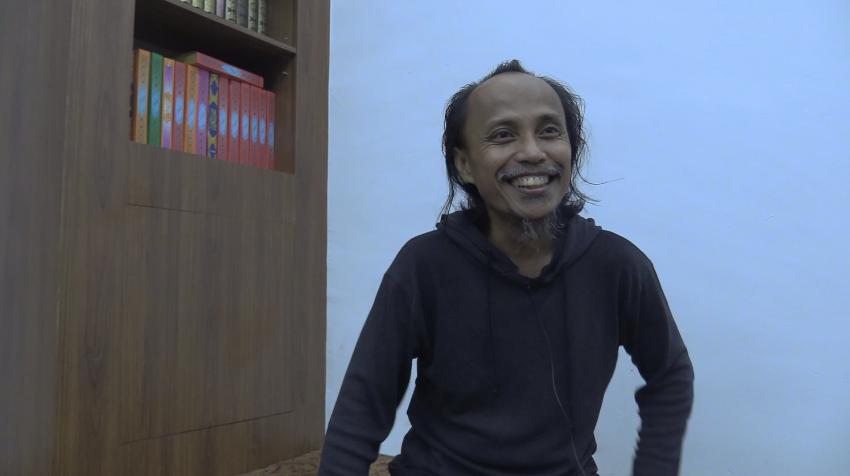
Mahdar, I, and the rest of the gang arrived in Singapore on Thursday afternoon, although the concert was actually scheduled for Friday evening. Luckily, I was able to occupy my time on Thursday by meeting with the founder of Keelat Theater Ensemble, Gene Sha Rudyn. Keelat Theater Ensemble has been performing “Islamic theater” in Singapore for the past eight years. Though average Muslims wouldn’t think twice about the permissibility of acting on screen or on stage, cinema and theater are certainly a point of concern for more conservative Muslims. Gene, a pious Muslim himself, takes things a large step further by staging the majority of his productions inside of mosques. This would be rather unthinkable for the majority of Muslims that I’m aware of in my hometown of Little Bangladesh, Los Angeles and abroad. Sure enough, Gene has had to deal with resistance and minor inconveniences along the way, but, for the most part, he remains unopposed in his creative efforts. I find it rather remarkable that Keelat Theater Ensemble hasn’t faced greater resistance than what Gene shared with me especially for producing shows in masjid’s. Gene told me that he’s met several non-Muslims who, despite being born and bred in Singapore among a sizeable Muslim minority population, entered a masjid for the first time in their lives to watch one of his shows.
Before getting into the details of Keelat Theater Ensemble’s operations, I pressed Gene on what exactly his definition of “Islamic” was. Upon meeting with many artists who brand their fine arts or performing arts engagements with the qualifier “Islamic”, I seem to be more and more confused about what exactly the term entails in this day and age. On the one hand, many Muslim thinkers shy away from the “Islamic/un-Islamic” binary, because such rigid categories gloss over the extensive gray areas that characterize the status and permissibility of arts production and consumption in Islam or complexities of all things in the world more generally. Nonetheless, I’ve been able to identify four general use cases for the term “Islamic” when referring to the arts. In the most general case, the term “Islamic” when applied to the arts refers to anyhing that uses explicitly religious langauge regarding religious figures, concepts, stories, etc. taken directly from the Quran and/or Hadith. If a play is all about the hijrah, i.e. the early Muslims’ first migration from Mecca to Medina, this play would be “Islamic” in this first sense. The second most common use of the term “Islamic” I’ve encountered refers to traditional art forms which, though not necessarily containing explicitly reglious content or meanings, have prominently figured into the arts legacies of historically Muslim majority societies such as arabesque in the realm of fine arts. The third-most common use of the term “Islamic” refers to any action that is “shariah compliant.” In the shariah, i.e. Islamic law, most human action falls under the spectrum of permissibility, while a more limited set of actions are universally agreed upon by ulama, i.e. Islamic scholars, to be explicitly prohibited, i.e. drinking alcohol, eating pork, committing adultery/fornication, etc. Most things that people do in life actually happen to be “shariah compliant” including calling a friend, eating, smiling, lauging, and working out, given that these things are done in isolation as opposed to being mixed in with clearly more sinful circumstances or done obsessively. Thus, each of these rather mundane activities could be referred to as “Islamic” in and of themselves. In other words, phoning a friend and lifting weights aren’t “Islamic” only when you do so while wearing a cap and donning a beard. Rather, they are instrinsically “Islamic” simply for being shariah compliant. The last and most tenuous use case of the term “Islamic” is to refer to anything that represents or caters to core values, manners, behaviors, or prescriptions that are championed in the Quran and Hadith. Thus, a song is “Islamic” if it carries a general message of the importance of, say, individual generosity. A painting is “Islamic” if it depicts children respecting or honoring their parents or elders. A fashion line may be “Islamic” if it abides by the allowances for covering the body for men and women found in the Quran for the purpose of guarding individuals’ honor and chastity. An interaction or conversation with people of other faiths is “Islamic” insofar as no one representative of a given religion dominates the conversation with their views or forces the others in the inter-faith group to succumb to their views. Etc. etc.
Gene’s theatrical efforts would fall under each of these qualifiers to varying degrees. For the most part, he adapts stories and concepts from the Quran and Hadith and reformulates them to a Western dramatic format with new characters and contexts. In fact, the conncection between the original scriptural inspirations for Gene’s works and the works themselves are often so subtle that the majority of audience members aren’t able to quite put their hands on the connection whatsoever. Keelat Theater Ensemble has yet to hit the mainstream arts market in Singapore, so Gene’s plays continue to be staged mainly in masjids. Because the Keelat Theater Ensemble has yet to go mainstream, they haven’t the pressure, let alone the time and budget, to crank out theater productions in 2-3 weeks time, a common timeframe for mainstream, professional theater groups. The members of Gene’s group are thus mostly “part time” actors, taking several months to properly rehearse a piece fit for staging in a mosque. Additionally, because Keelat Theater Ensemble productions are currently relegated to mosques, there are a number of things that Gene cannot or at least has yet to incorporate into his works including live music and dance. due to controversies surrounding both activities in Islam. The biggest and most apparent controversy, though, surrounds physical interaction between non-mahram men and women on stage. There is a great diversity of opinions regarding what Muslims are willing to tolerate in a dramatic or cinematic work. Such Muslims maintain that the arts should not be used as a loophole for individuals to witness or engage in the sexually explicit or violent acts that often characterize the output of today’s major film industries including Hollywood and Bollywood. The “libertarian” Muslim voices of the arts communities I’ve connected with in Southeast Asia hold that the stage or cinema is meant to allow for an accurate description or representation of society. In these Muslims’ view, both virtue and vice are to be up for grabs for representation on the stage. Such arts proponents maintain that a portrayal of something sinful stage or on screen should not be equated with a promotion or advertisement of that sin. Things like free gender mixing, zina (i.e. illegal sex - adultery/fornication), domestic abuse, violence/war, etc. may be justified as shariah compliant and incorporated by a Muslim artist into their productions in order to portray such acts in negative lights, thereby rejecting such behavior in real life. Gene may be willing to toy with some of these standards and expectations if there were a pressing need to do. For now though, Gene’s priority is to service his community with content that they demand, and if that means tempering images or messages on stage, so be it.
SimplyIslam’s 6th Annual Mawlid Festival
The day following my interview with Gene Sha Rudyn, music was in the air in preparation for the 6th Annual Mawlid Festival at the MAX Atria organized by SimplyIslam. The event featured three speakers who spoke of the need for praise and love for the Prophet Muhammad including a keynote by Sheikh Hisham Kabbani interspersed with brief performances by three musical acts: Singapore Haqqani Ensemble,an impromptu pop/RnB trio featuring lead vocals by Adeep Nahar (vocals), Fuad Ko (guitar), and Syech Razie Dawila (oud), and a healthy dosage of traditional Moroccan-style qassida by Moroccan vocalist Anass Samsar.
SimplyIslam is an organization dedicted to religious education and programming in Singapore, largely represented by adherants of Naqshbandi Sufism, the pre-eminent sheikh of which in the world today is Sheikh Hisham Kabbani. The biggest takeaway from this event and a subsequent number of smaller, more private gatherings I attend thereafter was the validity of celebrating the Prophet Muhammad’s birthday (i.e. Mawlid) in light of Naqshbandi Sufi philosophy. I should reiterate that birthdays and their celebrations are problematic in the eyes of a number of conservative Muslims, because such Muslims point out that the Prophet left no precedent for the celebration of either his or any others’ birthdays during his day. Matters of permissibility in this regard really boil down to a fundamental philosophical difference “purist” Muslims (e.g. Salafi’s, Wahhabi’s) and their, for lack of a better word, “non-purist” counterparts. The former group of Muslims believe that the face of Islam should revert to how things were in say the Prophet Muhammad’s time in Medina. Only things which are explicitly mentioned or observable as being sanctioned by the Prophet and his ummah (followers) during his time as related in the Hadith are to be seen as permissible activities. All other things done and thoughts had in the twenty-first century are to be regarded with skepticism. On the other hand, “non-purist” Muslims, once again for lack of a better word, believe that all things done and thoughts had by Muslims in contemporary society need not have literal analogues in the examples set forth by the Prophet Muhammad and the ummah of his day. As long as the thoughts authored and deeds committed by Muslims in this day and age conform to the general spirit and laws of the Quran/Hadith, bid’ah or innovation is fair game. All in all, the biggest takeaway from the event for me was the importance of praise and love for Allah, the Prophet Muhammad, and by extension the whole of humanity. Naqshbani Sufis recognize the place of song and music in securing this love, and thus music factored extensively into the festival. In addition to the music and speakers, a handful of vendors sold books, hijabs, jewelry, and perfumes in the rear of the ballroom with an audience of roughly five hundred people.
A Traditional Malay Wedding
I won’t linger for very long in this final topic for this blog post. Basically, I attended a traditional Malay wedding between Mr. Fadhil and Ms. Azirah, neither of whom I know personally but was nonetheless invited by Mr. Fadhil’s brother, a mutual friend of ours. All in all, a very enjoyable time, similar to the traditional Minangkabau wedding I attended about a month ago back in Indonesia, also between a couple I had never met before in my life.
MAPIM & Cigku Azmi
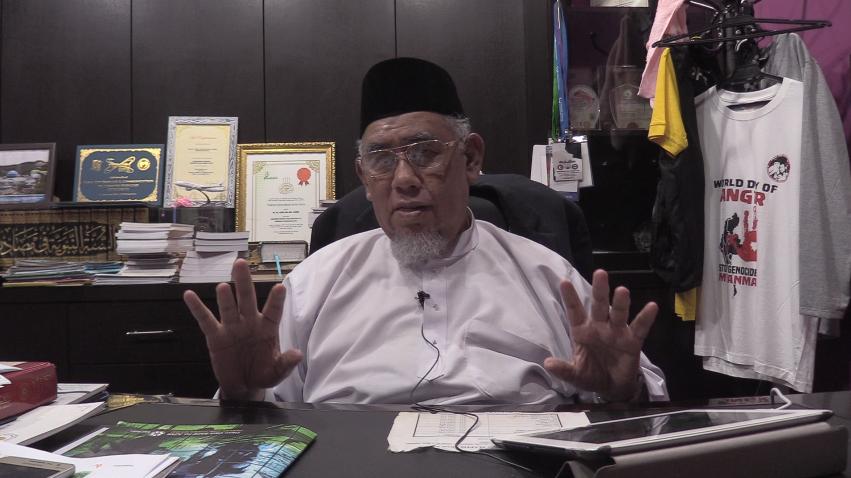
My last and final engagement of the week was an interview with the president of MAPIM (Malaysian Consultative Council of Islamic Organization), Haji Mohd Azmi Abd Hamid, aka. Cigku Azmi. The following copy is lifted from a MAPIM brochure given to me by Cigku Azmi:
MAPIM is a registered organization established in Malaysia by way of a certified registeration under the Registrar of Societies Act of Malaysia in 2012. As a movement it was coined as a resolution in the Muslim Cogress of Malaysia in 2006 and finalised its formative idea as a consensus amongst 2000 Islamic organizations who attended the Malaysian Conference of Islamic Ngos in 20008.
MAPIM thus serves as an umbrella organization of sorts that addresses issues the Muslim ummah in Malaysia and abroad. Cigku Azmi related the primary two functions of MAPIM as the following:
- Taghyir: transforming the ummah from within.
- Tahrir: activities relating to liberating Muslims facing persecution and oppression globally.
The concerns and activities of MAPIM far surpass the purview of arts and culture. Nonetheless, these two subjects do have their place in the mission of MAPIM, particularly in the former category that Cigku Azmi related to me, taghyir. On this point, the brochure relates the following:
Therefore MAPIM seeks to galvanize community and people’s power to combat evils in every human activities (sic): social ills, moral degradation, corruption, power abuse, embazzlement (sic) of nation’s wealth, poverty, economic disparity, crimes, wasteful lifstyle (sic), feudalism, racial and sectarian conflicts.
MAPIM is thus interested in arts and culture insofar as activities in these realms lead to “social ills, moral degradation…economic disparity, crimes, wasteful lifstyle…” Cigku Azmi premised our entire discussion on this matter with a summary of the colonial project. He said that when the colonialists came to the shores of nusantara (the “greater Malay world”), they made clear to local populations either explicitly or implicitly that they knew nothing or that their religions and cultures were objectively inferior. The colonialists imposed their language, technologies, and political, educational, and social institutions onto the native populations they conquered. The colonialists assumed they had the burden of teaching native peoples about every aspect of life: “we will teach you what to think, how to think, how to dress, what to eat, etc.” Cigku Azmi claims that the behemoth corporations that run the entertainment industries and all other affairs of the world today have taken the place of European colonialists of the past several centuries by continuing to do away with local cultures in favor of a homogenized, commercialized culture that is wholly in service to the will of capitalism. While native peoples in post-colonial nations may have overtly obtained their political and economic independence from European colonial powers, Cigku Azmi holds that the minds of native people remain thoroughly colonized or otherwise controlled by the West. Movies, music, music videos, video games, and pornography from the United States in particular have had a particularly “degrading/dehumanizing” effect on the Muslim populations of Muslim majority socities as individualism, materialism, and consumerism do away with brotherhood, spiritualism, and modest lifestyles.
Cigku Azmi bemoans the notion that art, once an invaluable legacy of tribes and ethnic groups, have become mostly comoditized in the world thanks to the influence of the mainstream music industries of the world originating in the American music industry. Just as American military prowess continues to threaten the physical safety of Muslim civilians mostly due to collateral damage from drone warfare, Cigku Azmi believes pop artists valorized by the masses today who end either up being irrelevant in a few years or actually lead to their own downfalls physically, mentally, and/or emotionally are nothing more than collateral damage in the eyes of multi-national corporations profiting massively from their celebrity statuses. The consumers of such industrial products are no better off in Cigku Azmi’s opinion, routintely ingesting handfuls of immorality, insensitivity, and senselessness leading to a degradation or degeneration of character and integrity, both highly important aspects of being a good Muslim.
Hearing his tirade against the popular music industry today, i.e. pop and mainstream rock and rap acts, I sought to tease out which kinds of music and cultures of music production and consumption Cigku Azmi might be personally willing to engage in. I correctly assumed that he would not dare to spend his time listening to lyrics that openly encouraged drug use, illicit sex, extravagence, lack of humility, etc. However, I wondered if Cigku Azmi might be more welcoming of a piano sonata by, say, Mozart played in a concert hall by respectful, paying audience members. Even this kind of recreational engagement though was not without its downsides in Cigku Azmi’s view. Cigku Azmi generally approves of music making that is either in service of God or humanity in an obviously utilitarian way. One may argue that a Mozart piano sonata may have the effect of bringing peace and mindfulness to the lives of audience members who then may choose to do good over evil in society due to the influence of such an instrumental work. Cigku Azmi does not give such instrumental music as much benefit of the doubt though. He believes that such engagements idolize exercises in creativity and largely reflect a culture of art for arts sake. He argues that 30 or 40 USD and 3 hours spent for a night out to listen to Mozart could be better used in the service of God and humanity as an ideal Muslim ought to be engaged in such as Islamic missionary work (dakwah), charity or volunteering work, or educational efforts. Getting into what other people ought to be doing with their time and money for the sake of their own uninvasive, personal fulfillment especially when with good reason to do so seems to me to be a bit tyrannical, but I took Cigku Azmi’s perspective to heart nonetheless. If however, someone is interested in putting together a benefit concert for Syrian or Rohingya refugees featuring a Mozart piano sonata, I gather that Cigku Azmi and the others at MAPIM would not hesitate to help put such an effort together given that the Mozart piano sonata was well in demand and properly determined to be a sharia-compliant piece of art.
Tasty Treats in Kuala Lumpur: Pt. 3
The quality and quantity of food that graced may past week likely surpasses that of any other week on my travels thus far. Aside from the delicious foods I had at public eateries, I was fortunate enough to take part in two private feasts which were had sunnah style - sitting down on the ground, washing one’s hands in water poured over a receptacle, eating with the hands, and sharing a large silver platter of food among four people. On both festive occasions, the main course was an exquisite rice dice with never ending, freshly perpared lamb curry. Opportunities of a once in a lifetime status indeed.
